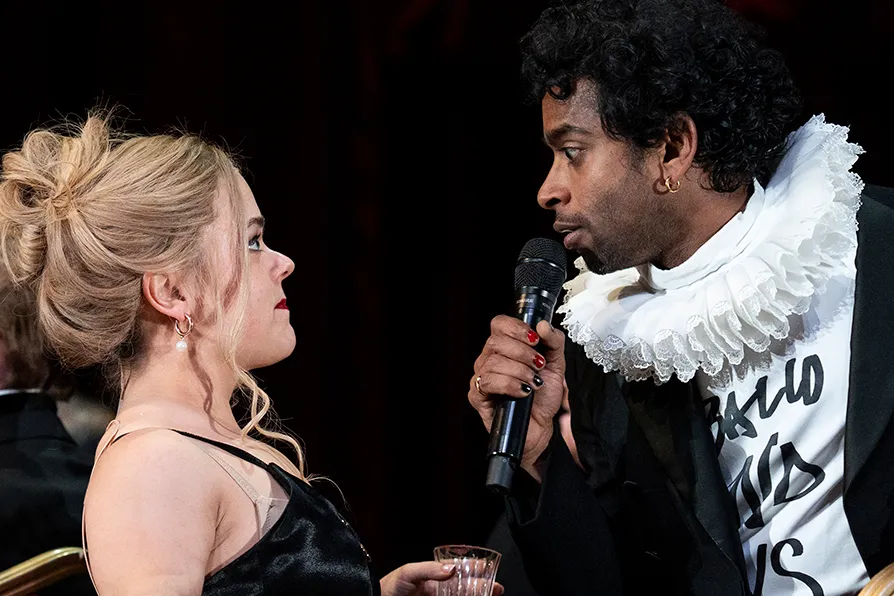New releases from Bill Callahan, The Delines, and Beck
MAYER WAKEFIELD is gripped by a production dives rapidly from champagne-quaffing slick to fraying motormouth

 UNCHECKED TRAUMA: Francesca Mills as Ophelia and Hiran Abeysekera as Hamlet [Pic: Sam Taylor]
UNCHECKED TRAUMA: Francesca Mills as Ophelia and Hiran Abeysekera as Hamlet [Pic: Sam Taylor]
Hamlet
National Theatre, London
⭑⭑⭑⭑✩
INDHU RUBASINGHAM’s tenure as the artistic director of the National Theatre has a kind of “back to the future” feel to it. Kicking off her first season was her debate-worthy take on Euripides’s tragedy, Bacchae. Now we have her assistant director, Robert Hastie, taking on Hamlet.
Hastie is not aiming for reinvention. His vision is one in which the gauche, complacent palace of Denmark cannot mask a crumbling, self-consuming state. At the heart of it is the frantic prince who personifies the absurdity of such a royal institution. It feels eerily familiar, rather than in your face.
Hiran Abeysekera, in the title role, dives rapidly from champagne-quaffing slick man to fraying motormouth in convincing fashion, although there are moments in the first half where the verse is spoken at such frenzied pace that it’s hard to decipher.
His spider-like physicality brings to life a man on the edge, with every sinew wriggling, particularly during The Murder of Gonzago where he clambers upon chairs at the back of the auditorium rejoicing in his cunning.
Nevertheless, it is Francesca Mills who manages to deliver the most memorable performance of the evening as Ophelia, as we see her suffer “the poison of deep grief.” There is a haunting quality to her mental decline after Hamlet’s rejection and Polonius’s death, emphasising the human collateral of unchecked trauma, which staunchly contrasts with her warmth in earlier scenes.
Hastie seems to consciously highlight the exclusion of those in our society who may be forced to struggle due to atypical bodies or minds. Gertrude’s line “One woe doth tread upon another’s heel/ So fast they follow” particularly resonates as the grinding spiral of violence escalates. It is striking throughout the evening and a credit to a coherent cast, that particular phrases — many of which are still everyday parlance — seem to travel weightily into the auditorium.
The graveyard scene finally sees Ben Stones’s imposing, mural-laden set dismantled and it feels as though power’s grand veil has suddenly dropped to reveal a dark emptiness behind it — a comment on our age or just a very gripping production of Hamlet? Perhaps both.
Runs until November 22 and in cinemas from January 22. Box Office: 020 3989 5455, nationaltheatre.org.uk

MAYER WAKEFIELD has reservations about a two-handed theatrical homage to jazz’s most mercurial musician

GORDON PARSONS joins a standing ovation for a brilliant production that fuses Shakespeare’s tragedy with Radiohead's music











